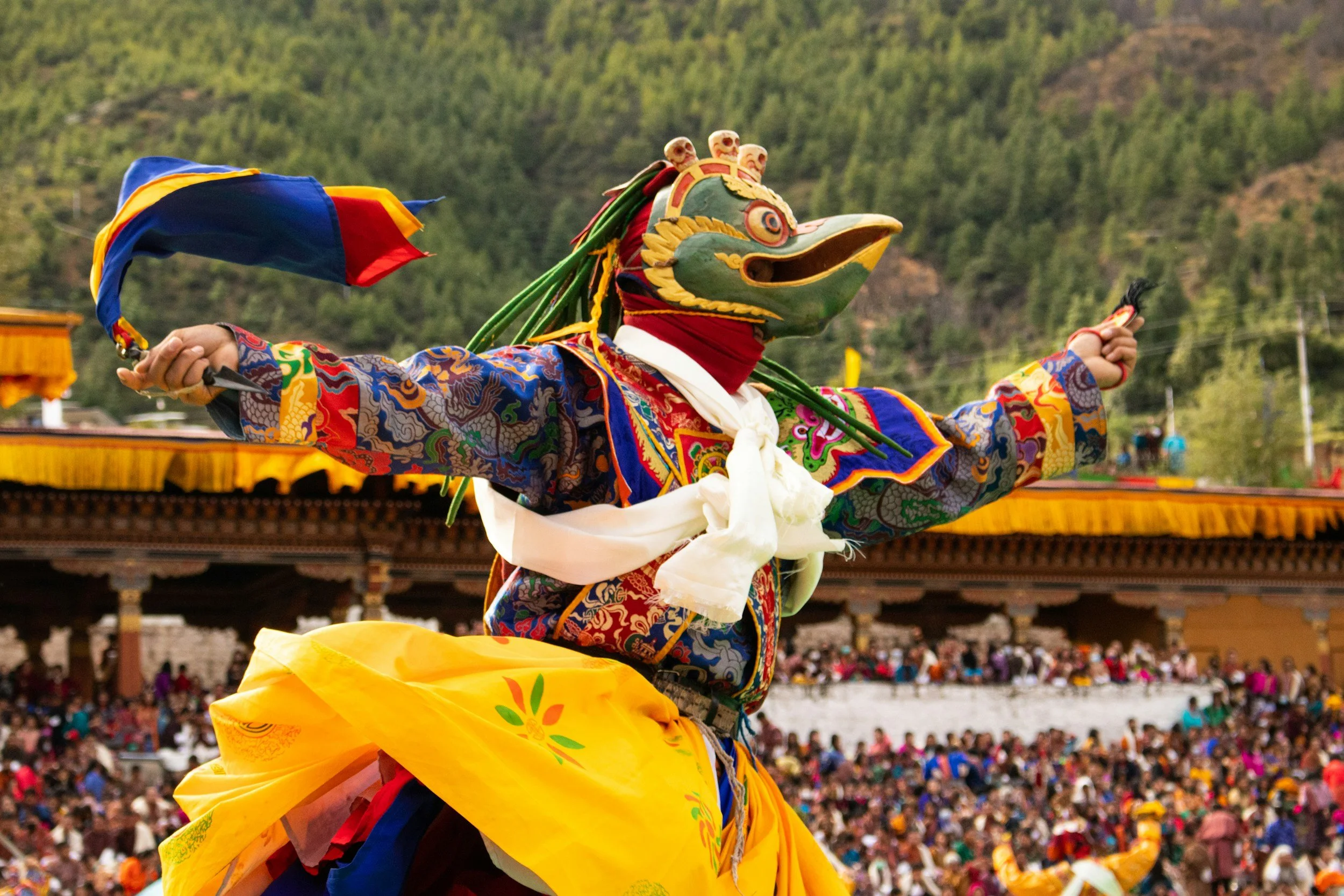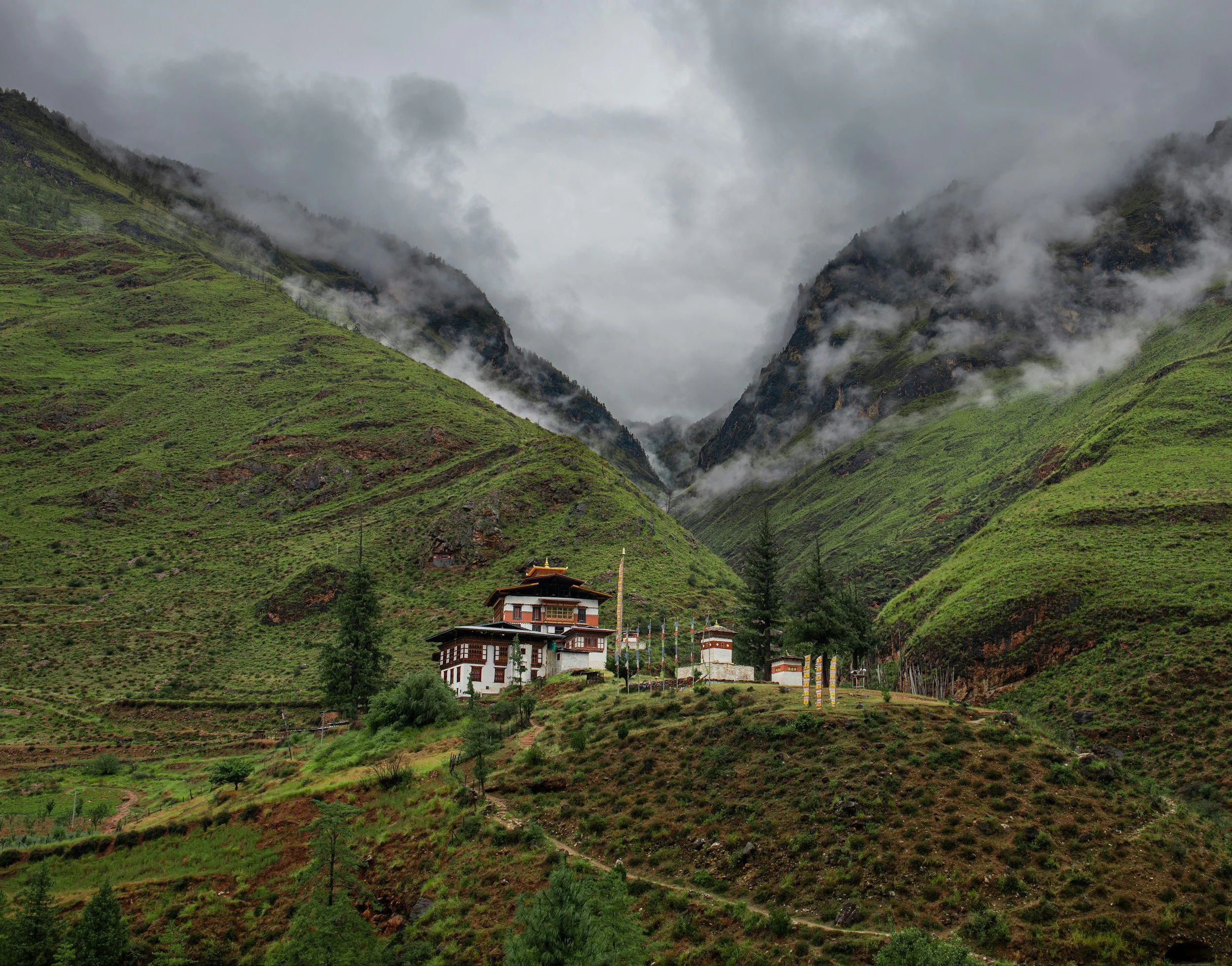What is Bhutan’s Gross National Happiness?
If you’ve traveled enough, you’ve probably seen your fair share of national slogans. “Incredible India.” “Malaysia, Truly Asia.” “Amazing Thailand.” Bhutan, tucked between India and China in the Himalayas, takes a very different approach. Instead of chasing tourist numbers or GDP growth, the tiny kingdom decided to measure success by something far less conventional: happiness.
Caption: What makes life meaningful? Bhutan’s answer is to balance material progress with spiritual and cultural well-being.
Yes, Bhutan is the only country in the world that officially gauges its progress with what’s known as Gross National Happiness (GNH).
How it all began
The idea goes back to the 1970s. In 1972, Bhutan’s fourth king, Jigme Singye Wangchuck, famously declared: “Gross National Happiness is more important than Gross Domestic Product.”
Caption: Spirituality, community and culture are an important part of Gross National Happiness.
At the time, Bhutan was just opening up to the outside world, and the young king wanted to make sure that modernization wouldn’t bulldoze over the country’s traditions, environment, and spiritual values. Instead of blindly chasing economic growth, Bhutan would aim for balanced development — where culture, community, and nature mattered just as much as cash.
The philosophy behind Gross National Happiness
Gross National Happiness isn’t about walking around with a smile plastered to your face. It’s based on the belief that true well-being comes from harmony — between people, nature, culture, and governance.
The government turned this philosophy into policy by defining four main pillars:
Good governance – accountable leadership and fair institutions
Sustainable socio-economic development – growth that doesn’t harm future generations
Cultural preservation and promotion – protecting Bhutanese identity, language, and traditions
Environmental conservation – safeguarding Bhutan’s forests, rivers, and wildlife
Later, these pillars were expanded into nine domains that include health, education, community vitality, psychological well-being, and time use (yes, Bhutan officially cares about your work-life balance).
Caption: A respectful relationship to nature is a part of the philosophy.
What it looks like in practice
So how does Gross National Happiness actually shape everyday life in Bhutan? Here are some examples:
Environmental laws: By constitution, Bhutan must keep at least 60% of its land under forest cover (today it’s closer to 70%). The country is also proudly carbon negative.
Tourism policy: Instead of mass tourism, Bhutan enforces a daily fee for visitors (the Sustainable Development Fee). The idea is high value, low volume — fewer tourists, but better protection of culture and environment.
Cultural preservation: Traditional dress (the gho for men, kira for women) is still encouraged in schools and government offices. Dzongs (fortress-monasteries) remain the centers of community life.
Well-being focus: Education and healthcare are free. Development projects are often evaluated not just on profit, but on whether they contribute to the happiness and well-being of citizens.
Caption: Traditional dresses are encouraged in Bhutan.
Does it work?
Critics point out that Bhutan still faces challenges: youth unemployment, rural poverty, and the influence of globalization. Measuring happiness isn’t an exact science, and some question whether the government uses it more as a branding tool than a practical policy.
But even skeptics admit that GNH has helped Bhutan avoid the pitfalls of overdevelopment and environmental destruction seen elsewhere in the region. And for travelers, the philosophy is more than a slogan — it’s something you can feel. Whether it’s the calm order of Thimphu (a capital city without a single traffic light), the pristine forests of Phobjikha Valley, or the warmth of locals who measure wealth in community, you sense that Bhutan really does run on a different operating system.
Caption: Bhutan recognized early on the downsides of unchecked modernization, and instead chose a path of balanced development where tradition and progress walk hand in hand..
Final thoughts
Gross National Happiness is not about being cheerful all the time. It’s about a nation daring to ask: What makes life meaningful? Bhutan’s answer is to balance material progress with spiritual and cultural well-being.
And perhaps that’s why the country leaves such a lasting impression on visitors. You don’t just see temples and mountains here — you leave wondering about your own definition of happiness.
Looking at the state of politics and wellbeing in the West today, perhaps it’s time we asked ourselves if Gross National Happiness is not just Bhutan’s philosophy — but one the rest of us should finally adopt.





